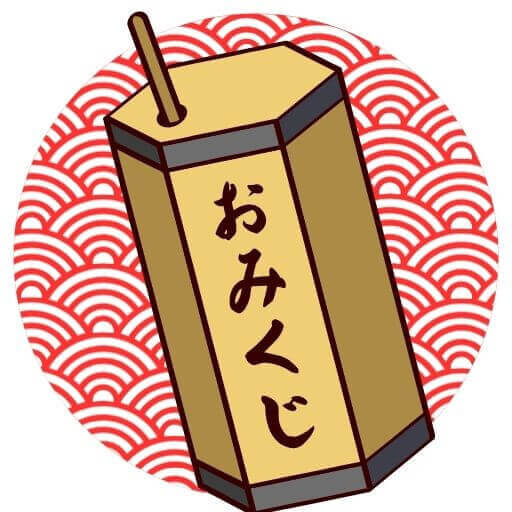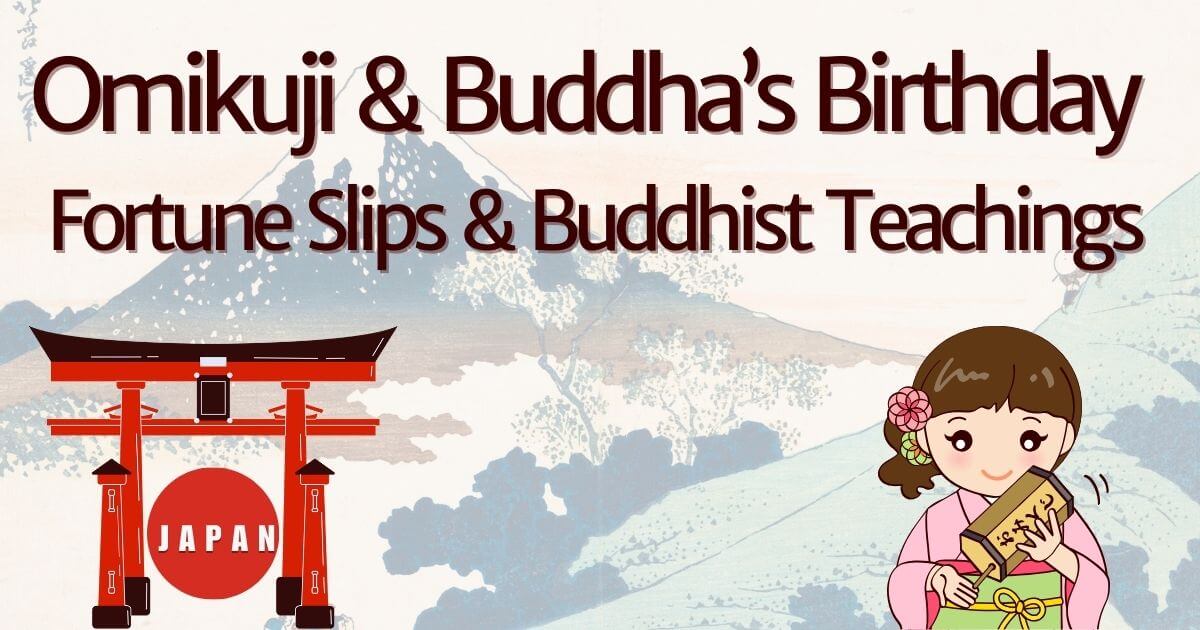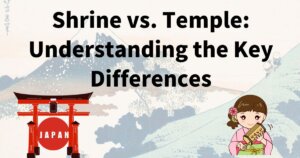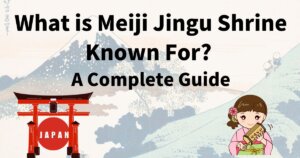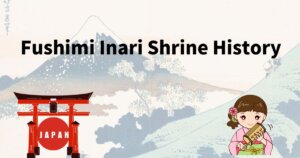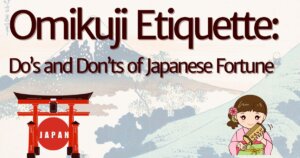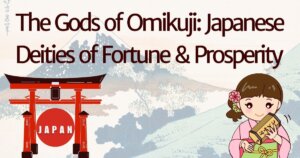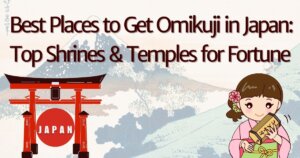📍 How is Omikuji connected to Buddha’s Birthday?
Discover the Buddhist wisdom behind fortune slips in Japan.
Learn how Omikuji teaches impermanence, karma, and self-reflection.
Find out why temples offer Omikuji and their spiritual significance.
The Connection Between Omikuji and Buddha’s Birthday (April 8th)
(おみくじとお釈迦様の誕生日(4月8日)の関係とは?)
What is Buddha’s Birthday? Understanding Hanamatsuri (April 8th)
Buddha’s Birthday, known as Hanamatsuri (花祭り) or Kanbutsu-e (灌仏会), is celebrated on April 8th in Japan. This festival commemorates the birth of Siddhartha Gautama, who later became the Buddha.
- Temples hold ceremonies where people pour sweet tea (Ama-cha) over small Buddha statues.
- It symbolizes the legend of Buddha’s birth, where heavenly dragons poured water upon him.
- Many visit temples to pray for good fortune, happiness, and enlightenment.
The Role of Omikuji in Buddhist Temples
While Omikuji is often associated with Shinto shrines, it is also commonly found in Buddhist temples. The teachings within Omikuji often reflect Buddhist principles:
- Many Omikuji contain Buddhist wisdom, encouraging self-reflection.
- Omikuji emphasizes impermanence (無常, Mujou), a core Buddhist concept.
- Temples often have unique Omikuji tied to Buddhist teachings.
How Omikuji Reflects Buddhist Teachings
Impermanence (無常): Nothing Stays the Same
Buddhism teaches that everything in life is impermanent (無常, Mujou). Omikuji reflects this idea:
- Your fortune today does not determine your future.
- Luck changes with effort and mindset.
- Good or bad, every experience is temporary.
Karma: Actions Lead to Consequences
Another key Buddhist principle is Karma (因果, Inga), which states that actions lead to consequences:
- Omikuji often suggests ways to improve one’s fate through positive actions.
- Fortune is not fixed but shaped by our choices and behavior.
Self-Reflection : Learning from Omikuji’s Advice
Buddhism emphasizes self-reflection and introspection (内観, Naikan). Omikuji encourages people to:
- Reflect on past actions and thoughts.
- Recognize areas for personal growth.
- Use Omikuji’s advice as a guide for self-improvement.
Key Takeaways: How Omikuji Reflects Buddhist Teachings
- Buddha’s Birthday (Hanamatsuri) is celebrated on April 8th.
- People pour sweet tea over Buddha statues during the ceremony.
- Many visit temples on this day to pray for happiness and enlightenment.
- Omikuji is found in both Shinto shrines and Buddhist temples.
- Many Omikuji contain Buddhist wisdom and teachings.
- The concept of impermanence (無常) appears in Omikuji.
- Karma (因果) is another key teaching present in Omikuji.
- Omikuji encourages self-reflection (内観) and self-improvement.
